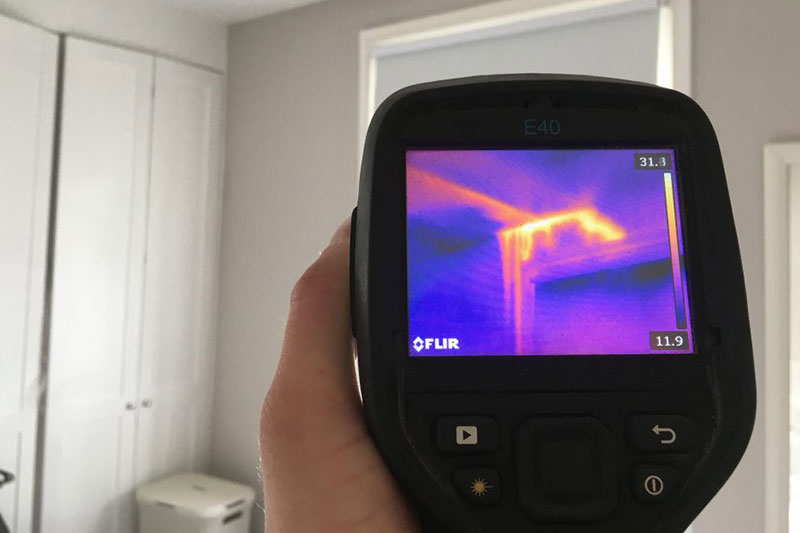
Certificate of Sanitisation
A Certificate of Sanitisation locates the presence of mould and fungal growth in the air, on surfaces, and within the materials of your dwelling.
Long term subjection to damp, mildew and mould growth could cause the failure of building materials and surface finishes. For instance discolouration and staining to decorated ceilings and walls, in addition to the rotting of woodwork, plaster and other building materials.
What is Mould and Mildew?
Mould and midew is a form of fungus. It is completely different from plant or bacteria. Mould and midew takes water and food to advance. This is very much like us. Mould and midew grows fastest in conditions in between 5 to 40 celsius & humidity above 60%. This amount of humidness provides adequate moisture to allow mould to cultivate and grow.
Soon after water damage restorative works have taken place, a certificate of sanitisation gives a standard of quality assurance, in particular when the residential or commercial property has been afflicted by sewage or waste leaks. Increased or prolonged exposure are linked to multiple detrimental side effects to your health.
Why Your Building Needs to be Well Ventilated
When air can not circulate around a property properly and the air is poorly ventilated, mould can occur. Green or black spots may appear on walls and ceilings or on woodwork around your property, particularly behind furniture or other poorly ventilated areas. The mould and mildew may appear behind household furniture or inside cabinetry.
If a property has high quantities of moisture, this leads to a wide array of health concerns for occupants. Woodworm and wet or dry rot can appear when high moisture levels are present over an extended period.
Why Get a Certificate of Sanitisation
Diagnostics: oftentimes mould or other fungal growth can go undetected and can not always be seen. Testing can differentiate between fungal growth and stains. Can be performed as part of home buying process.
Post remediation verification: this is to ensure that any clean up works are carried out to a satisfactory standard.
Comparative testing: evaluation of affected vs unaffected, compliant vs non-compliant areas.
What Does the Inspection Involve
When undertaking a Certificate of Sanitisation survey, samples will be taken from the air and surfaces in an entirely non-destructive process. Our technicians are able to collect and analyse samples and provide results on-site and advise on appropriate remedial actions. Upon completion, a full and well laid out and easy to understand report will be provided.
In addition, further testing can be carried out as part of an in depth survey whereby penetrative mould infestation and fungal growth can be examined.
Book a Certificate of Sanitisation Survey
Our surveyors are trained and experience in all aspects of finding damp, remedying the underlying issues causing damp and then maintaining the building to ensure damp does not reoccur. Get in touch via phone or email to book your survey today.
Request a Quote
Our Services
UK Wide Services
We cover cover England, Scotland & Wales, including:
Bath, Birmingham, Bradford, Brighton and Hove, Bristol, Cambridge, Canterbury, Carlisle, Chester, Chichester, Coventry, Derby, Durham, Ely, Exeter, Gloucester, Hereford, Kingston upon Hull, Lancaster, Leeds, Leicester, Lichfield, Lincoln, Liverpool, City of London, Manchester, Newcastle upon Tyne, Norwich, Nottingham, Oxford, Peterborough, Plymouth, Portsmouth, Preston, Ripon, Salford, Salisbury, Sheffield, Southampton, St Albans, Stoke-on-Trent, Sunderland, Truro, Wakefield, Wells, Westminster, Winchester, Wolverhampton, Worcester, York, Bangor, Cardiff, Newport, St Davids, Swansea, Aberdeen, Dundee, Edinburgh, Glasgow, Inverness & Stirling


